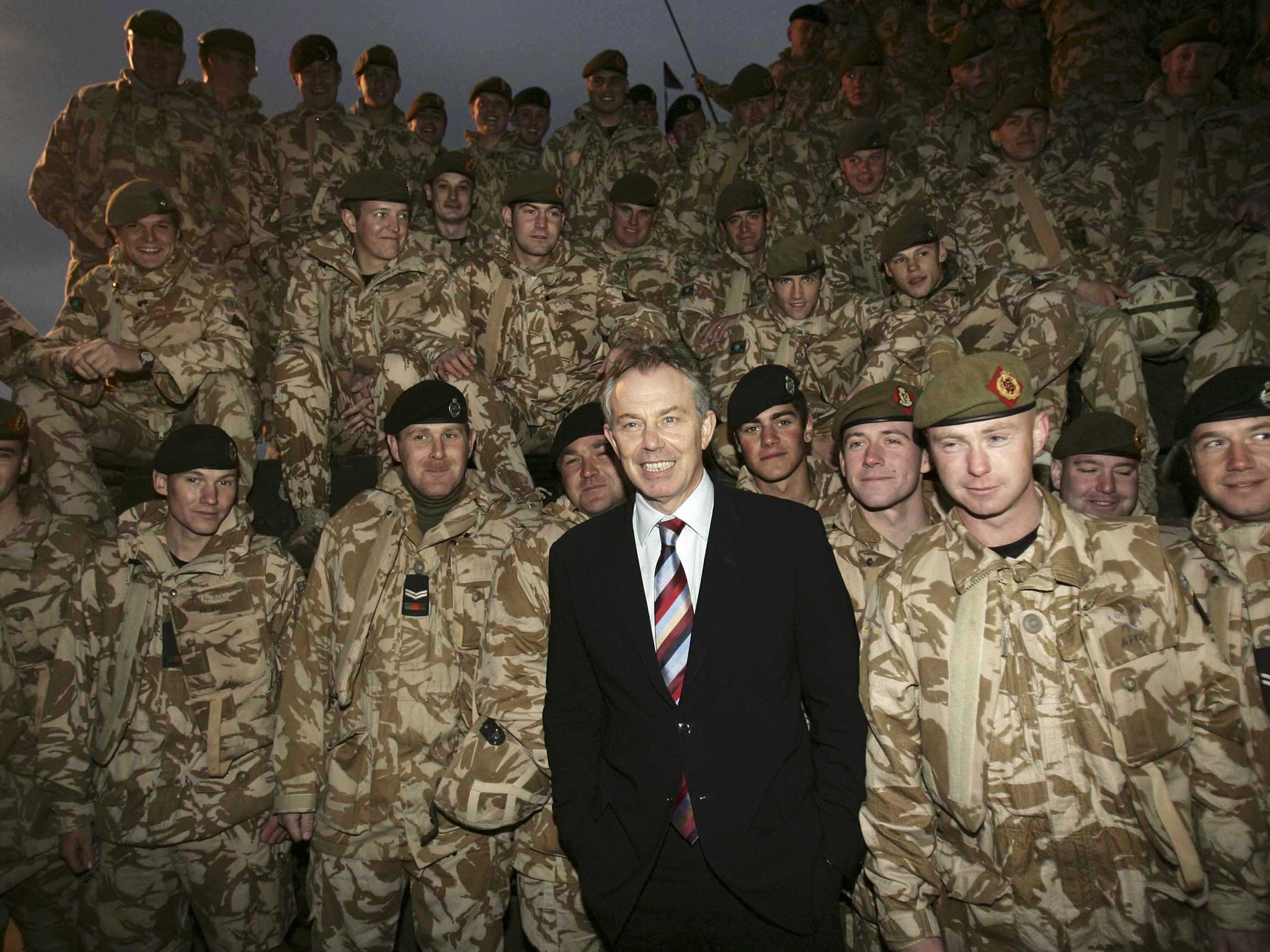Chilcot report: Tony Blair 'really believed' Saddam Hussein had WMDs, Lord Butler says
However, peer says former Prime Minsister gave too much credence to 'sporadic and patchy' intelligence

Your support helps us to tell the story
From reproductive rights to climate change to Big Tech, The Independent is on the ground when the story is developing. Whether it's investigating the financials of Elon Musk's pro-Trump PAC or producing our latest documentary, 'The A Word', which shines a light on the American women fighting for reproductive rights, we know how important it is to parse out the facts from the messaging.
At such a critical moment in US history, we need reporters on the ground. Your donation allows us to keep sending journalists to speak to both sides of the story.
The Independent is trusted by Americans across the entire political spectrum. And unlike many other quality news outlets, we choose not to lock Americans out of our reporting and analysis with paywalls. We believe quality journalism should be available to everyone, paid for by those who can afford it.
Your support makes all the difference.Tony Blair "really believed" that Saddam Hussein had weapons of mass destruction, but exaggerated the reliability of the intelligence relating to them, Lord Butler has said, ahead of the publication of the Chilcot Report into the run-up, conduct and aftermath of the Iraq War.
Reiterating the findings of his 2004 report, Lord Butler said that he did not think Mr Blair had lied over the WMD threat that Saddam posed. However, in his fervour to persuade the United Nations of the legal case for war he gave too much credence to secret intelligence that was “sporadic and patchy”, the former Cabinet Secretary said.
Lord Butler, whose report one year after the invasion cast doubt on the intelligence used by Mr Blair to argue for war, told BBC Radio 4’s Today programme that the former Prime Minister nevertheless “really believed” that Saddam did have WMD, and that this was a view shared by intelligence agencies around the world.
“He wanted to be in helping the United States because he thought that Saddam Hussein was a dangerous person to the world and to the Middle East and that the world would be better off without him,” Lord Butler said.
“My criticism of him was about the way he reported the intelligence. He exaggerated the reliability of the intelligence…I wouldn’t say deliberately…he was trying to persuade the United Nations and the world that there was a proper legal basis for taking military action against Iraq.
"In fact, of course, the Joint Intelligence Committee had said to him that the intelligence was sporadic and patchy. He said to the House of Commons that it was extensive, detailed and authoritative. That was where the inconsistency lay. I don’t call that lie. He may well have thought himself that it was extensive, detailed and authoritative.”
The report of Sir John Chilcot’s Iraq Inquiry, which is far broader in its remit than Lord Butler’s inquiry, will finally be published on Wednesday, 13 years after the war began. While Lord Butler’s report shed light on the intelligence failings underlying the decision to go to war, Sir John’s will also assess the political decisions that were taken in the build-up to war, and is also expected to be highly critical of British and American failings in their preparation for the aftermath of the war, which saw Iraq collapse into a bloody civil war that fostered the rise of ISIS and other extremist groups.
Lord Butler repeated his view that Tony Blair was right not to resign as Prime Minister over his alleged exaggerations of the intelligence on Saddam’s WMD.
“I think he really believed that what he was doing was right,” Lord Butler said. “In the great speech he made to the House of Commons on the eve of the invasion he didn’t really rely on the intelligence about weapons of mass destruction. He relied on another argument which was: if we don’t take action now, and in ten years time Saddam Hussein is still a power in the Middle East armed with a nuclear weapon would we forgive ourselves.”
Senior Labour and SNP figures have said they may seek legal action against Mr Blair if the former Prime Minister is severely criticised by the Chilcot Report. Mr Blair has said he will await the findings of the report before commenting publicly.
Join our commenting forum
Join thought-provoking conversations, follow other Independent readers and see their replies
Comments